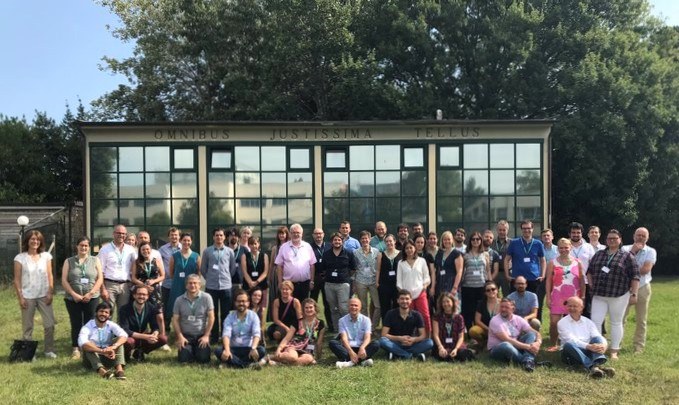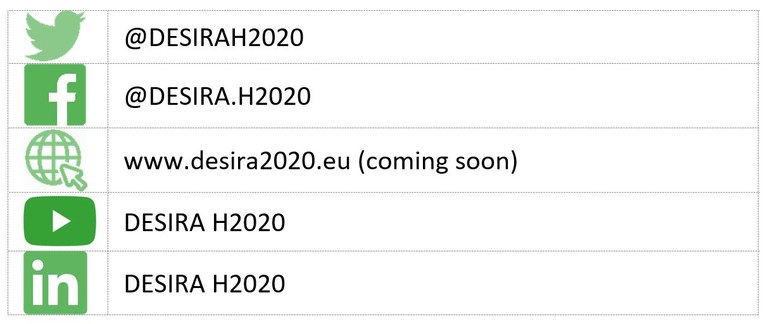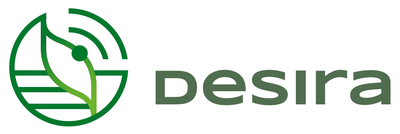DESIRA Kicks-Off in Pisa
Brussels, 9 September 2019.
DESIRA (Digitisation: Economic and Social Impacts on Rural Areas) is a Horizon 2020 Project coordinated by the University of Pisa. It aims to improve the capacity of society and political bodies to respond to the challenges that digitisation generates in rural areas, agriculture and forestry, and to provide a comprehensive assessment of both opportunities and threats.
The project brings together 25 organisations from across sectors and disciplines including research institutes, NGOs, and SMEs. This consortium met on Wednesday 4 September in Pisa for two and a half days to kick off the project.

To achieve its goal, DESIRA wants to build a knowledge and methodological base that makes it easier to assess the past, current and future socio-economic impacts of ICT-related innovation. It seeks to embed Responsible Research and Innovation into researchers’, developers’ and users’ practices and policies, and looks to offer mechanisms and tools that will support decision-making on challenges and opportunities related to digitisation.
These and other goals are to be carried out by:
• Mobilising a network of Rural businesses and services, Public Authorities, Citizen groups, Digital technology operators, Farmers, Media and Academics which will be organised together in 20 Living Labs and one EU-level Rural Digitisation Forum (RDF);
• Building a Conceptual and Analytical Framework and a Taxonomy and Inventory of Digital Game Changers based upon the concept of a Socio-Cyber-Physical System ;
• Drafting a participatory indicator-based method for impact assessment of past, current and future digitisation trends, according to the principles of Responsible Research and Innovation and aligned with the Sustainable Development;
• Developing 80 digitisation scenarios and communicating them through digital storytelling ;
• Producing 5 Use Cases , and Showcase technologies including a virtual reality Virtual Farm Platform for ICT-based solutions to emerging rural/agricultural/forestry problems;
• Producing a Policy Analysis, a Roadmap and an Ethical Code ;
• Using a Virtual Research Environment to boost the potential of participatory research.
During the kick off meeting, organisation delegates held several plenary sessions, parallel meetings and training sessions at the Department of Food, Agriculture and Environment of the University of Pisa. These gatherings allowed the consortium to establish the best working methods for the upcoming 4 years in which DESIRA will be running.
The first day presented the different work packages, introduced the communication aspects of the project and jointly reviewed the methodology for the Taxonomy of Digital Game Changers.
The second day included a presentation and discussion on the 20 Living Labs, an online social media training and a closing session on an initial approach to the work of the thematic groups of the Rural Digitisation Forum (RDF).
The final day covered coordination and data management issues and a training session on the project’s Virtual Research Environment.
What’s next?
DESIRA will initially carry out a compilation of the most relevant and innovative actors within the concept of Socio-Cyber-Physical Systems. The aim is to come up with a Taxonomy and Inventory of Digital Game Changers. According to Gianluca Brunori (DESIRA coordinator), the first step is to gain a solid understanding of “the game” – the variables involved and the context – and then to identify the main stakeholders in the digitisation landscape who are capable of bringing about notable change to rural areas.
The official website of DESIRA will be launched very soon. In the meantime, please subscribe to our newsletter and follow us on social media to stay tuned.
More information
Jouni Kaipainen, Kokkola University Consortium Chydenius, University of Jyväskylä

List of partners
Università di Pisa
The James Hutton Institute
FIBL Switzerland – The research institute for organic agriculture
SISTEMA Gmbh – Environmental information mining
Universidad de Córdoba
Consiglio Nazionali delle Ricerche
Cultivate
SARGA - Sociedad Aragonesa de Gestión Agroambiental SL.
AEIDL
Zemnieku Saeima
Karlsruher Institut Fuer Technologie (KIT) - Institut für Technikfolgenabschätzung und Systemanalyse (ITAS)
Amigo SRL
Ghent University
Stichting Wageningen Research
Wageningen University
Baltic Studies Centre
Advisory Service Croatia - ASC
Uniwersytet Łódzki
Instituut voor Landbouw, visserij en voedingsonderzoek
Jyväskylän yliopisto
Institut National de la Recherche Agronomique
Erevnitiko Kentro Kainotomias Stis Technologies Tis Pliroforias Ton Epikoinonion Kai Tis Gnosis – AHINA
Debreceni Egyetem
PEFC – Programme for the Endorsement of Forest Certification
Fraunhofer Gesellschaft Zur Foerderung Der Angewandten Forschung E.V. – IESE

